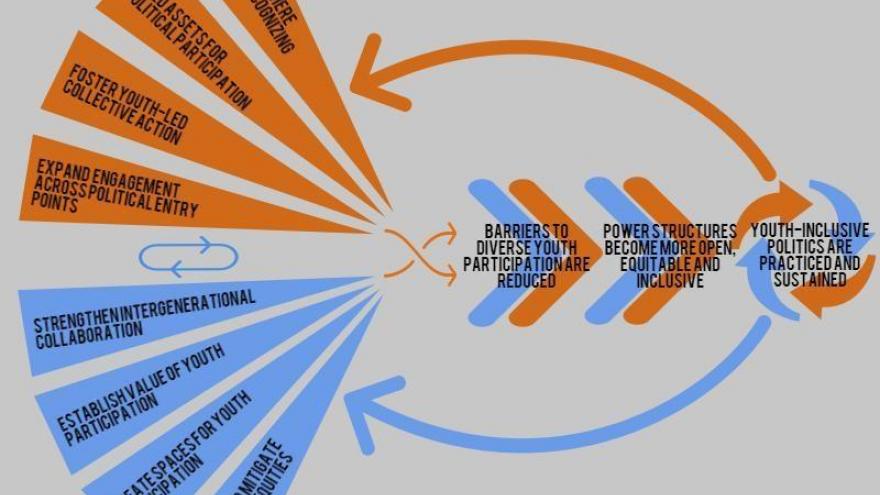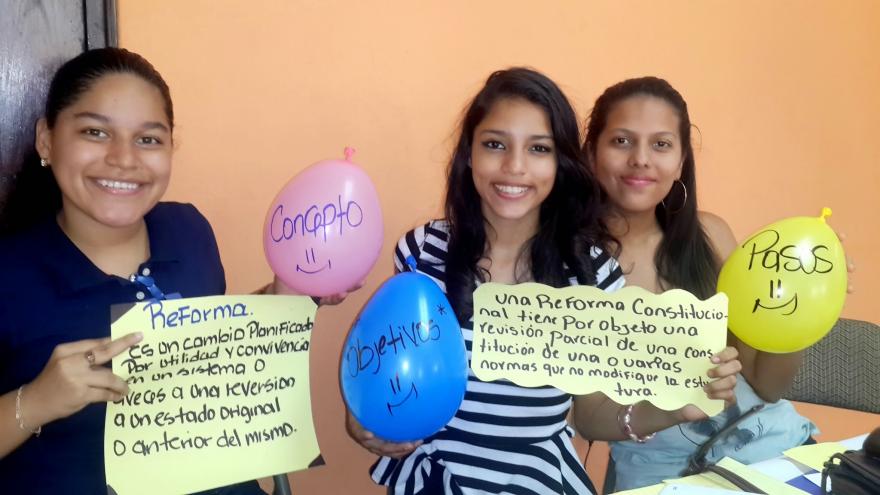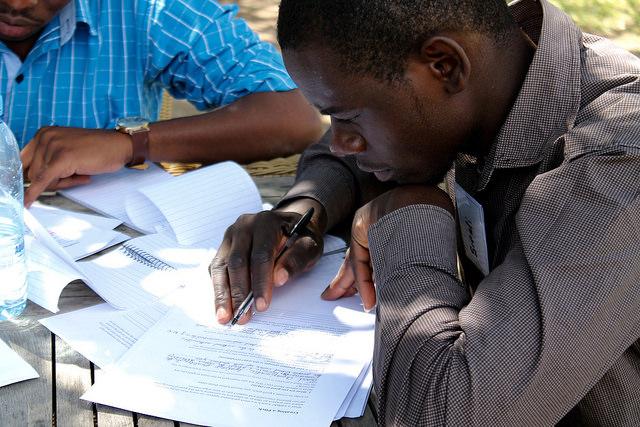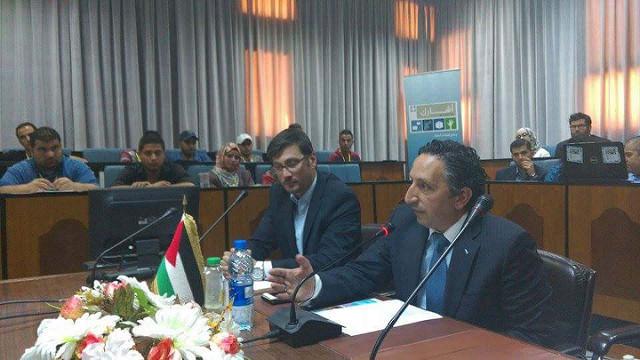
Recognizing that patterns of youth activism are changing, NDI partners with young people to help them use both formal and informal means of political participation to influence positive change. This helps align increased youth participation in emerging movements and issue-based initiatives (such as digital activists, community volunteers, and aspiring changemakers who are still formulating their roles), with efforts by young leaders to work within formal structures and alongside adult power holders to make their voices heard. For example, NDI is working with youth organizations and groups in Nigeria, Nicaragua, Kosovo, Jordan and many other countries to advance positive change in their communities and influence power structures.
If programs consider the circumstances, interests and motivations of youth, take into account youth diversity and the need to build their confidence (particularly for women and marginalized communities) and capacities, while assisting them to take action to reach their goals, youth can build an important sense of agency and feel empowered to make change. Concurrent efforts involving adult-led and traditional power structures to open up space for youth to engage and influence decision-making processes are equally important to encourage and allow youth to remain sustainably engaged. This process must account for the different barriers that affect the political participation of young women, LGBTI youth, youth with disabilities and other marginalized communities.
How does this change happen? NDI’s study concluded that it involves an iterative, multi-faceted process that starts with an interplay between the development of youth agency and an enabling environment for active youth participation. This thinking is presented in the next section as a theory of change that unifies the various efforts required to ultimately reduce barriers to youth participation and institutionalize youth-inclusive and -responsive political practices. This theory reflects principles of positive youth development by recognizing the individual and environmental factors that affect the ability of young people to develop and fulfill their potential as agents of positive change.

The process of making politics more inclusive of young people is illustrated above in the visual depiction of a unified theory of change. The two primary components that propel this process are the development of youth agency and an enabling environment for their participation. Agency refers to the willingness and capacity of young people to act individually and collectively. Whereas, the enabling environment refers to the political avenues and opportunities that encourage young people to express themselves, interact with power holders and demonstrate their competence. Cultivation of agency and the development of an enabling environment combine to provide young people with the starting-power required to influence political processes and outcomes through active, organized participation. In turn, systemic barriers to participation start to erode and power structures become more open and inclusive.
Unpacking the Theory
Of course, these changes take time and the process is much more complex than the illustration might suggest. The inherent political nature of this work precludes linear, mechanistic approaches in practice. It also makes it necessary to consider fundamental questions about which young people are participating, which centers of power are they challenging, and which issues and interests are they promoting. Because every context is different, additional thought needs to be given to specific political, cultural or economic circumstances so that programs can be tailored appropriately. This is particularly important when dealing with the unique barriers to participation faced by young women and other marginalized youth. However, the unified theory of change can still be used as a framework to help structure youth political participation programs, and make initial design and delivery decisions.

The theory envisions the need for programs that address the development of both youth agency and an environment that enables their participation. This requires a mix of interventions and an underlying emphasis on the role young people themselves can play in driving change. Rather than being passive recipients of assistance, young women and men are expected to play an active role in developing their agency and promoting an environment that better enables youth participation.
In a general sense, agency refers to the willingness and capacity of young people to act individually and collectively. More specifically, agency entails a blend of knowledge, skills and attitudes that develop and are reinforced - in large part - through direct political action. This blend will look different from one context to the next, depending on a variety of factors, including the needs and interests of the youth involved. Improved agency supports a belief among youth that their action matters and can have a meaningful impact.
The recommended approach for developing the political agency of young people includes four principal elements:
- meet youth where they are, recognizing that diversity determines different starting points and needs based on identity, location, cultural and other contextual circumstances;
- build their assets through experiential forms of learning that increase knowledge, technical skills, soft skills, and practical political know-how;
- foster youth-led collective action to address self-selected issues and causes that motivate their political participation; and
- expand engagement across various political entry points so that youth are actively occupying available space and seen as playing multiple political roles.
An enabling environment refers to political avenues and opportunities that encourage young people to express themselves, engage power holders and demonstrate their competence. Most programs face situations where politics is either closed to young women and men, or there is only token support for their participation. The lack of support severely limits participation, even in situations where some amount of agency exists. To change this reality, a profoundly political strategy is required, which relies on relationship building. This involves interactions where understanding, trust, respect and appreciation can emerge, along with space for participation in policy discussions and decision making and collaboration between youth- and adult-led organizations.

The recommended approach to fostering an enabling environment includes the following elements:
- recognize and address structural inequities that disadvantage youth based on their gender and other identities;
- create spaces for youth to interact with power holders and build relationships;
- establish the value of youth participation through demonstrations of leadership and constructive engagement; and
- strengthen intergenerational relationships through collaboration.
As discussed, youth agency and the enabling environment are reinforcing. The interplay between the two can begin breaking down barriers to youth participation. Initial steps taken to develop youth agency and the enabling environment are about creating the momentum needed for longer term changes in political norms and practices.
The "Lessons for Structuring Youth Political Participation Programs" further describes the program implications of the unified theory of change, with specific examples from NDI programs.
